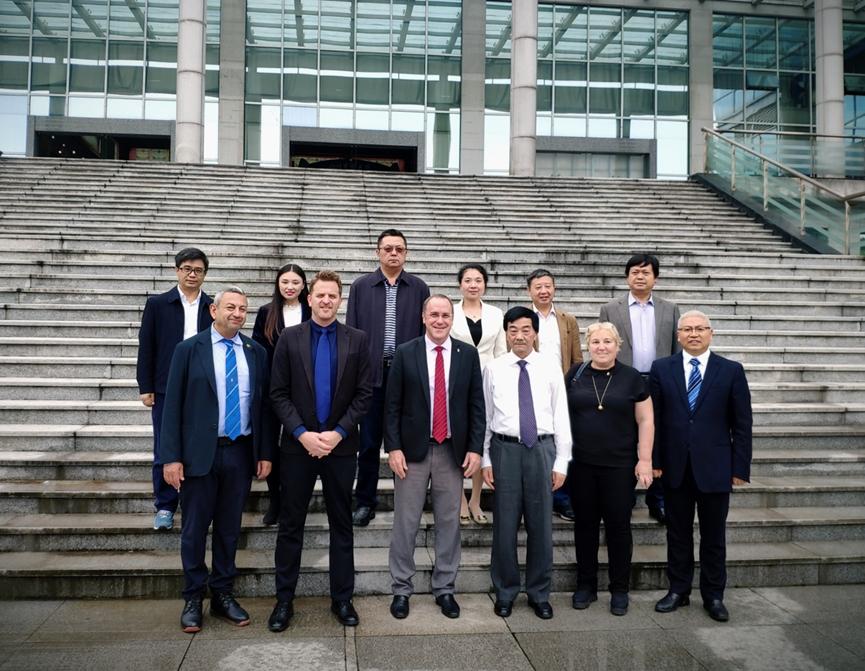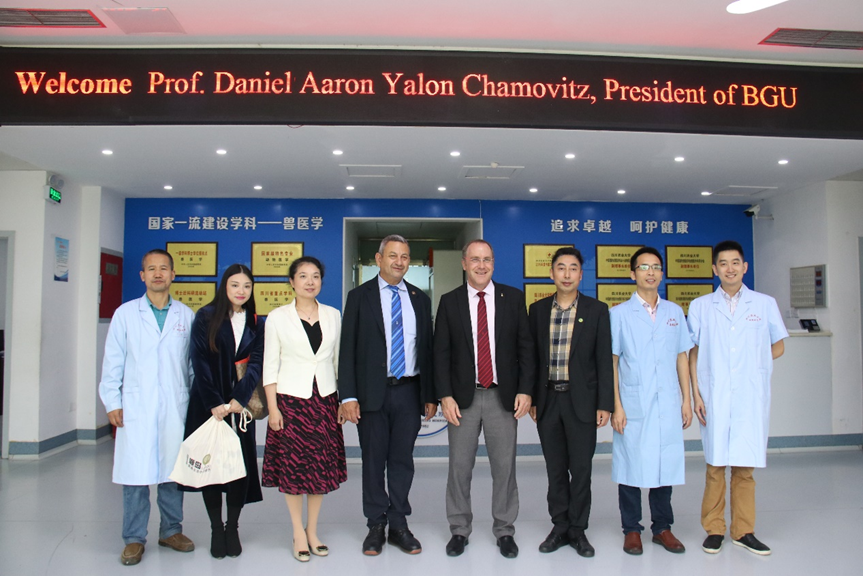Since the establishment of the project, the project leader and the team have actively carried out international cooperation and exchanges, established a long-term and stable cooperative relationship with Ben Gurion University in Israel, carried out academic and scientific research cooperation in many important fields, improved the international influence of the laboratory, and promoted the development and international skills training of laboratory biochemistry, environmental engineering, agricultural water and soil engineering and other disciplines.

Sign cooperation agreements to promote exchanges and cooperation between the two sides
In June 2015, the school of water resources and Hydropower of Sichuan Agricultural University signed a cooperation agreement with the international Desert Research Institute of Ben Gurion University in Israel. The contracting parties will carry out joint research projects in the fields of water resources treatment and management, wastewater treatment and reuse, irrigation technology, environmental sustainable production system and agricultural science. The agreement is valid from August 2015 to June 2020. Project Leader: the Chinese side is Associate Professor Wang Ying and the other side is Professor Gideon oron. The agreement aims to further promote exchanges and cooperation between the two universities, between the cities where the universities are located and between government agencies of the two countries.
In June 2018, the two sides again signed the standard cooperation agreement between the school of water resources and Hydropower of Sichuan Agricultural University and the Jacob brew stein Desert Research Institute (JBIDR) of Negev Ben Gurion University in Israel. Professor Wang Ying is responsible for the research project of Sichuan Agricultural University. Professor Chen Hui and Dr. Tang Zizhong are Chinese Cooperative researchers; Professor Dina zilberg is responsible for the research project of Ben Gurion University, and Professor Zeev Ronen, Professor Moshe Herzberg and Professor Amit gross are Israeli cooperative researchers. To study the micro pollutants exposed to zebrafish after wastewater treatment, so as to improve water quality and reduce health risks through advanced treatment. The agreement comes into force from the date of signing and is expected to terminate in joint scientific activities on December 31, 2020. The activities and results of the research project can be used or published in the routine practice of the scientific community of Sichuan Agricultural University or Ben Gurion University. Each partner can retain the intellectual property rights of scientific achievements obtained by their own laboratories. The agreement aims to establish a formal scientific cooperation relationship between Sichuan Agricultural University and Ben Gurion University.
Relying on this project, 5 SCI papers, 1 CSCD paper and 1 patent application have been published. In terms of talent training, the water treatment and membrane technology laboratory currently trains 2 young teachers, 1 doctoral student, 7 postgraduates and 30 undergraduates.
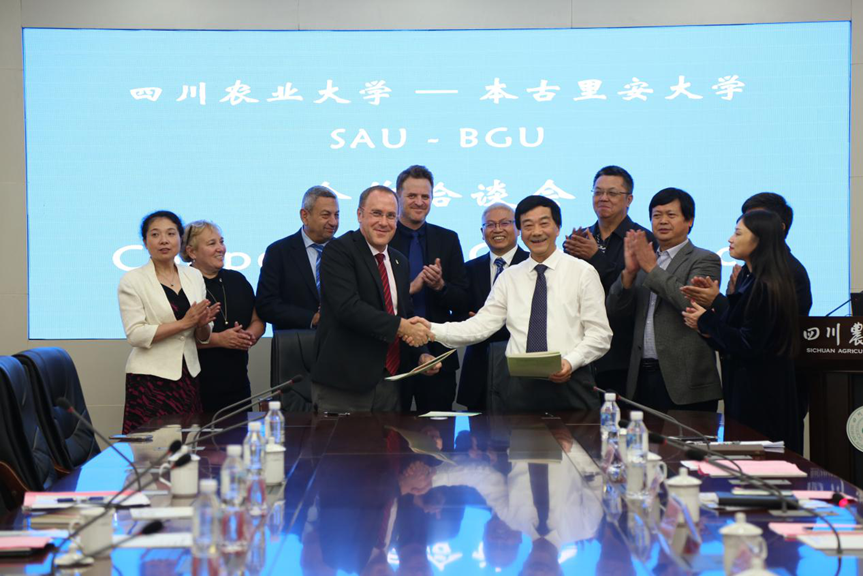
Mutual visits of experts from both sides
Since the establishment of the project, the project leader has established a cooperative Laboratory of water treatment and membrane technology in the college. In August of the same year, he invited the partner Desert Research Institute, Professor Gideon oron, known as the first person in Israel's water resources management, to visit us for one month, and personally participated in guiding the construction of the cooperative Laboratory of water treatment and membrane technology. The laboratory is equipped with two sets of laboratory scale reverse osmosis membrane filtration devices. The device draws lessons from the design scheme of micro reverse osmosis membrane device of Yale University and Ben Gurion University, and the Engineering Department of Ben Gurion University customizes the reverse osmosis membrane fluid components and various required accessories. The rest of the device, including pump, pressure gauge and electromagnetic flowmeter, are ordered by sterlitech company in the United States and IFM company in Germany. The device will be used in the research of this joint laboratory project, which is mainly used to detect the removal efficiency of various micro pollutants by the improved reverse osmosis membrane and the interaction between micro pollutants and membrane fouling. Another large sewage reuse system will be built in the engineering training center of the Institute of water resources and hydropower. The system will learn from the karawan sewage reuse system of Desert Research Institute. Its main structure includes three parts: sewage pretreatment system, membrane bioreactor (equipped with ultrafiltration membrane system) and reverse osmosis membrane secondary module system.
key international cooperation projects
This experiment and the cooperation Laboratory of Ben Gurion University have been approved as the "Research on membrane pollution and cleaning mechanism of reverse osmosis membrane in sewage reuse system" project of Sichuan International Science and technology cooperation and exchange research plan, comprehensively carried out the research on the surface and pollutants of reverse osmosis membrane, between pollutants and membrane cleaning mechanism, and innovated the new method of using quartz crystal microbalance and dissipation capacity, It has made great contributions to improving the theoretical system of membrane fouling and membrane cleaning。
In June 2018, Professor Zeev Ronen of Israel took the lead in proposing to apply for the key project of intergovernmental international scientific and technological innovation cooperation "treatment of biota pathological reaction caused by micro pollutants in sewage: treatment of micro pollutants by membrane technology to meet safe reuse", involving many fields such as microbiology, environmental science, medical biochemistry, genetics and molecular biology, and strengthening the cooperation between the two countries in the field of water science and technology, Deepen political, scientific, technological and people to people and cultural relations between the two countries.
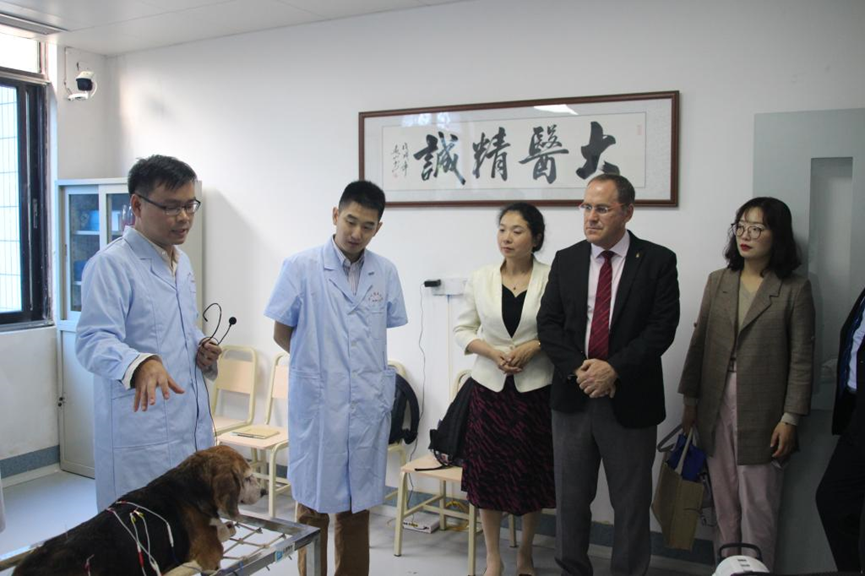
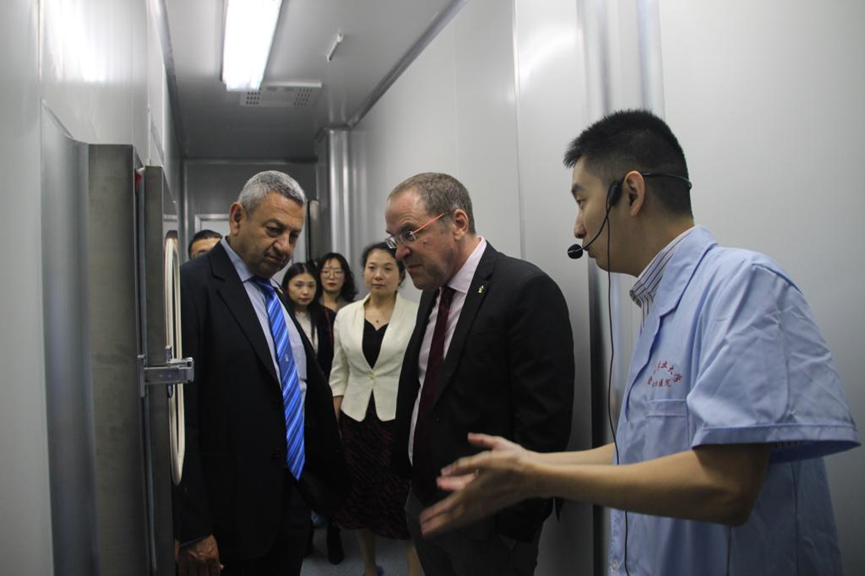
Student summer camp course
From 2016 to 2018, a total of 4 undergraduates and 4 postgraduates were recommended to attend summer camp courses. This cooperation has further promoted innovative exchanges and cooperation between the two universities, between the cities where the universities are located and between government agencies of the two countries. China and Israel have taken advantage of this cooperation opportunity to establish a long-term R & D platform, achieve leapfrog development and rank among the international advanced level of scientific research.
